With Hanukkah just around the corner, we’re reflecting on the prolific Jewish poets who fortify the cannon. Because as we unpack the chanukiah and dreidel in anticipation of the Festival of Lights, we’re also extolling the voices of our Jewish contemporaries. In honor of the holiday, here are eight of our favorite Jewish American poets to keep you warm during this eight-night celebration.
Emma Lazarus
Emma Lazarus was born in 1849 to a large Sephardi-Ashkenazi Jewish family in New York City. Lazarus was the fourth of seven children and took an interest in American and British literature at an early age. Because of her skill with the German language, Lazarus edited many adaptations of German poems, including those of Johann Wolfgang von Goethe and Heinrich Heine. To gloss over her own work would be a disservice, as her most famous poem remains permanently on display in her hometown. “The New Colossus,” a sonnet Lazarus donated to raise funds for The Statue of Liberty’s pedestal construction, was posthumously engraved in bronze at the statue’s base. In the sonnet, Lazarus names The Statue of Liberty the “Mother of Exiles,” exalting this “mighty woman with a torch” and welcoming immigrants like her own ancestors. “Give me your tired, your poor, your huddled masses yearning to breathe free.”
Hyam Plutzik
Hyam Plutzik was born in 1911 to Belarussian immigrant parents in Brooklyn. Shortly after his birth, Plutzik’s family bought a farm in Southbury, Connecticut, where he spent most of his childhood before moving to Bristol, Connecticut at age twelve. A true New Englander, Plutzik studied poetry at both Trinity College and Yale University. He enlisted in the US Army shortly after the bombing of Pearl Harbor and went on to become a 1st lieutenant. It was while serving in the Army that Plutzik began writing his most notable work – an epic narrative poem titled “Horatio.” This astonishing piece explores the life of Hamlet’s dear friend and was published to great acclaim in 1961.“Horatio” was also named a finalist for the Pulitzer Prize that same year.
Maxine Kumin
Born in 1925, Maxine Kumin was named United States Poet Laureate from 1981 to 1982. Despite being born to Jewish parents, Kumin attended Catholic kindergarten and elementary school in Philadelphia. As a young adult, she moved to Cambridge, Massachusetts, to study at Radcliffe College, where she earned both her bachelor’s and master’s degrees. Kumin was a lifelong learner, enrolling in poetry courses well after earning her degrees. While studying at the Boston Center for Adult Education, Kumin met Anne Sexton and the two of them remained friends until Sexton’s death. A prolific poet, Kumin’s work has garnered her a Pulitzer Prize for Poetry, the Aiken Taylor Award for Modern American Poetry, an American Academy and Institute of Arts and Letters Award for excellence in literature, and six honorary degrees, among other accolades. Her poetry strikes a balance between an examination of life’s ephemeral nature and a fascination the dense physicality of the world.
Allen Ginsberg
As one of the leading figures of both the Beat Generation of the 1950s and the counterculture that followed, Allen Ginsberg is arguably one of the most influential American poets in recent history. Ginsberg was born in 1926 to a Jewish family in Newark, New Jersey. As a young teenager, Ginsberg wrote political letters to The New York Times, addressing issues such as World War II and workers’ rights. The political eventually became personal as he wrote his magnum opus “Howl” as a response to the destructive forces of capitalism and conformity in the United States. “Howl” garnered national attention when its exploration of heterosexual and homosexual led to an obscenity trial in 1957. Judge Clayton W. Horn ruled in Ginsberg’s favor, stating that freedom of speech isn’t truly free if the speaker must resort to “vapid innocuous euphemisms.” Though he was raised Jewish, Ginsberg practiced Buddhism in his adulthood, living a modest life of secondhand clothes and small apartments.
Alicia Ostriker
Born in 1937 in Brooklyn, Alicia Ostriker took inspiration from the Robert Browning poems and Shakespeare plays her mother read to her as a child and began writing poems at an early age. Ostriker is both a Jewish and feminist poet and her writing demonstrates these identities with beautiful ferocity. The Mother-Child Papers, published in 1980, is a response to the birth of her son during the Vietnam War and the country’s reaction to the Kent State shootings. Her 1996 collection The Crack in Everything ambitiously explores illness, healing, art, and the flawed world we all exist in. Ostriker currently teaches poetry at Drew University’s Low-Residency MFA Program.
Joseph Brodsky
Joseph Brodsky was born Iosif Aleksandrovich Brodsky to Jewish parents in Russia in 1940. With the help of W.H. Auden, Brodsky moved to Ann Arbor, Michigan, in 1972 and became poet in residence at the University of Michigan until 1973. He went on to become a visiting professor at Queens College, Smith College, Columbia University, and Cambridge University, before eventually landing back at the University of Michigan. In 1987, Brodsky was awarded the Nobel Prize for Literature for his entire body of work, which included Russian poetry and English prose. In an interview pertaining to the Nobel Prize, a reporter asked him to identify himself as either American or Russian. “I’m Jewish; a Russian poet an English essayist – and, of course, an American citizen.” Brodsky was named United States Poet Laureate from 1991 to 1992.
Marilyn Hacker
Marilyn Hacker was born in 1942 in the Bronx, the only child of Jewish immigrants. Her 1974 collection Presentation Piece won the National Book Award and her translation of Marie Etienne’s King of a Hundred Horsemen won the PEN Award for Poetry in Translation and the first ever Robert Fagles Translation Prize from the National Poetry Series. In 2010, Hacker was awarded the PEN/Voelcker Award, a prize bestowed each year upon one poet whose distinguished and prolific body of work has made an impact on the state of American Literature. She currently teaches at the City College of New York in the Creative Writing department.
Louise Gluck
Louise Gluck was born in 1943 to Hungarian immigrant parents. A truly prolific writer, Gluck has published twelve collections of poetry and a collection of essays titled Proofs and Theories: Essays on Poetry, which won the 1994 PEN/Marth Albrand Award for First Nonfiction. Her collection The Wild Iriswon the Pulitzer Prize for Poetry in 1993 and in 2003 she was appointed the United States Poet Laureate. She was awarded the National Book Award in 2014 for her collection Faithful and Virtuous Night and in September President Barack Obama presented her with the 2015 National Humanities Medal. Gluck is a current Rosenkranz Writer-In-Residence at Yale University.

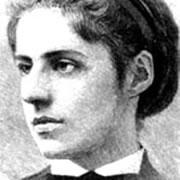
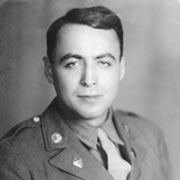

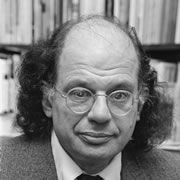
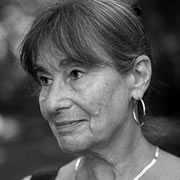

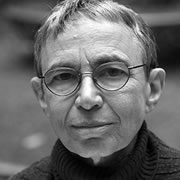
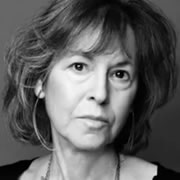

You must register to comment. Log in or Register.